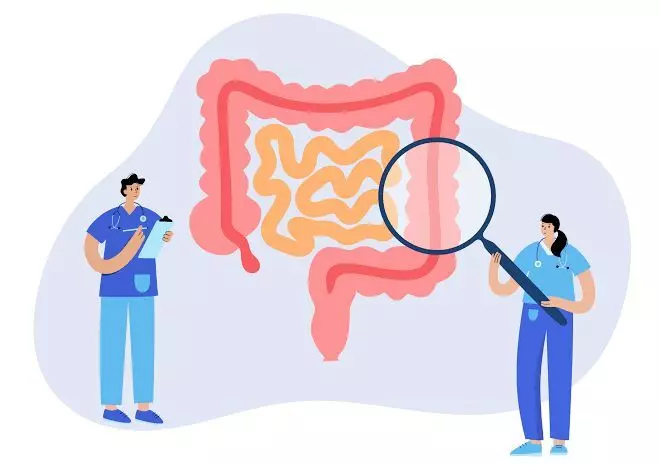An unspoken pandemic: Hyderabad reports increase in colorectal cancer among young population
Early detection is critical for effective treatment of colon cancer, the second leading cause of cancer-related deaths worldwide
By Anoushka Caroline Williams
Hyderabad: Colon cancer, once considered primarily affecting older adults, is now increasingly prevalent among young people. Lifestyle factors such as poor diet, obesity, and lack of exercise contribute to this alarming rise.
This article explores the trends, symptoms, and the importance of early detection.
Changing Demographics:
“Contrary to common belief that colon cancer only affects older people. Colorectal cancer is on the rise even among individuals in their 20s, 30s, and 40s," said Dr. Aswini Kumar Myneni, Hyderabad Proctologist.
Hyderabad Proctologists treating the condition urge even college students to discuss any suspicious symptoms, including constipation, rectal bleeding, or changes in bowel movements, with their doctors.
Alarming Cases:
Hyderabad Proctologists report a notable increase in young patients diagnosed with colorectal cancer. Cases include a father in his 30s who attributed rectal bleeding to hemorrhoids and a concerning week where all seven rectal cancer diagnoses were in young adults, with the oldest being 35 and the youngest only 18.
Importance of Early Detection:
"Early detection is critical for effective treatment of colon cancer, the second leading cause of cancer-related deaths worldwide," said Dr. Aswini.
“While it remains most common in individuals over 65, the incidence in this group is declining. Younger individuals, however, face unique challenges, including disruptions to careers and financial strain” Dr. Aswini added.
Symptoms to Watch For:
Changes in Bowel Habits:
If you observe a sudden alteration in your bowel movements, such as persistent diarrhea or constipation lasting more than a few days, these unexplained changes could be indicative of colon cancer and should not be overlooked.
Blood in Stool:
One of the most common symptoms of colon cancer is the presence of blood in the stool. If you notice blood during bowel movements or on the toilet paper after wiping, it's crucial to consult with a doctor. While other conditions like hemorrhoids or anal fissures may cause similar symptoms, it's essential to rule out the possibility of colon cancer.
Abdominal Pain:
Dr. Aswini advises that persistent abdominal pain, cramping, or discomfort, which doesn't subside even after trying over-the-counter medications, should not be ignored. Seeking medical attention for prolonged abdominal discomfort is essential.
Unexplained Weight Loss:
Losing weight without intentional efforts can signal various health issues, including colon cancer. If you have experienced weight loss without making changes to your diet or exercise routine, it's advisable to schedule a consultation with a doctor to explore potential underlying causes.
Fatigue:
Constant fatigue, even after obtaining sufficient sleep, can be a symptom of colon cancer. If you find yourself enduring unexplained fatigue, it's crucial to undergo a medical evaluation. Addressing fatigue promptly is vital for timely detection and management of potential health issues, including colorectal concerns.
Reasons for the Uptick:
"The exact reasons for the rise in colorectal cancer among young people remain unclear. But here are some factors that could have an effect” said Dr. Aswini.
To reduce the risk of colorectal cancer, consider implementing the following lifestyle changes:
- Quit Smoking: Cease smoking, including e-cigarettes, as it elevates the risk not only for lung cancers but also for colorectal and other cancers.
- Drink Responsibly: limit alcohol consumption to no more than two drinks for men and one for women.
- Prioritize Exercise: Engage in regular physical activity to lower the risk of developing colorectal cancer, especially if you lead a sedentary lifestyle.
- Manage Weight: If overweight or obese, take steps to lose weight, as this significantly reduces the risk of both developing colorectal cancer and succumbing to its effects, particularly in the case of colon cancer.
- Increase Fiber Intake: Consume a daily minimum of 25 grams of fiber to maintain a healthy colon. This involves incorporating more fresh fruits, vegetables, whole grains, beans, and legumes into your diet.